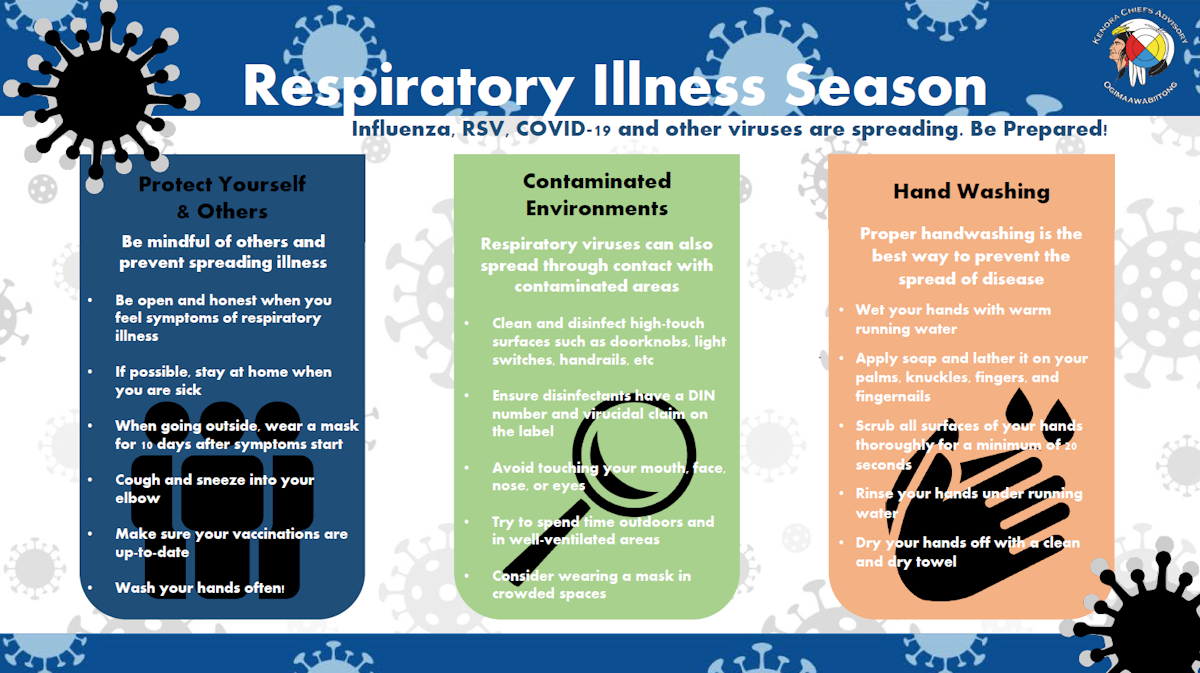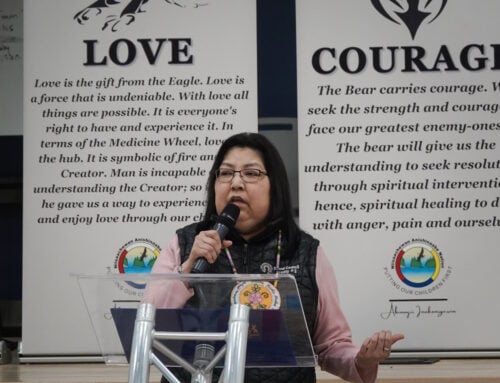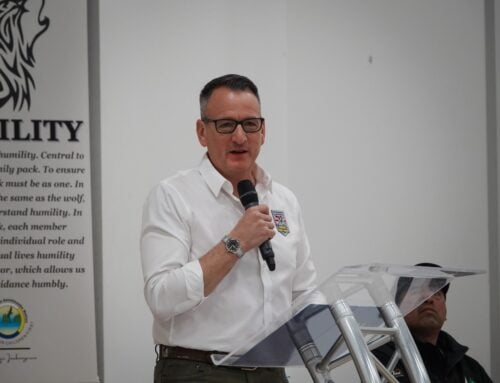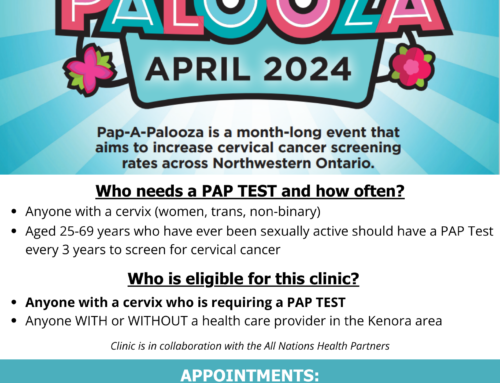As the winter season falls upon us, Ogimaawabiitong (Kenora Chiefs Advisory) is hoping to help the public minimize cases of COVID-19 and influenza within our communities.
Environmental Health Officer with Ogimaawabiitong, Garry Tang, shared the following message to encourage residents to stay home if they are sick and to do what we all can to take care of one another this winter.
From the EHO’s Desk:
After several years of the COVID-19 pandemic, we have rounded the corner on our first COVID-restriction-free Summer and Winter is now upon us. I hope everyone was able to enjoy time shared with friends, family, and loved ones! Now that the snow is falling, Children are back to school, and days are getting shorter, we are also facing the dreaded respiratory illness season. Influenza, RSV, COVID-19, and other viruses are spreading so we want to make sure everyone is prepared to do their part in keeping our communities happy and healthy.
I, for one, am extremely grateful that we have gotten back to a state of normal. However, I don’t want the lessons we learned during the pandemic to be completely forgotten. We all know to stay home when sick, wash our hands often, and cover our coughs. These are all things we have been told since before the pandemic. However, I think as a society the most important lesson we learned was to be compassionate and supportive of those who are ill; Not only so that those who are ill can be open and honest about their symptoms but also so that we can properly take care of our loved ones without social stigma.
KCA continues to encourage everyone to stay home and rest when ill. Isolating when sick is the best way to prevent the spread of respiratory viruses, but not everyone is able to stay at home. We need to remember that there is a multi-barrier approach we can use to help reduce the risk of spreading disease. We can wear well-fitted masks when sick or in crowded places, practice physical distancing and use PPE when with sick people, as well as make sure we stay up-to-date with vaccinations. Everyone is doing their best in their own way. As long as we are mindful of others and our impact on others, we can stop the spread of respiratory viruses. These types of viruses will never completely go away, but if we take the lessons we learned from COVID-19 we can move forward as a healthier, more resilient community.
Garry Tang, CPHI(C)
To help promote vaccination efforts, a number of COVID-19 and influenza vaccination clinics will be taking place in northwestern Ontario over the coming months. Vaccines are also available from your primary care providers, Community Health Nurses, and certain pharmacies in the region.
In Kenora, upcoming COVID-19 vaccine clinics are taking place in the Seven Generations Education Institute’s auditorium by appointment only on November 3, 7, 9, and 10.
To book an appointment online, use the following link or visit the Northwestern Health Unit’s website:
https://launch.caredove.com/nwhu. For more information on the COVID-19 vaccine, you can contact the NWHU at 807-468-3147.
KCA’s Community Health Nurses are planning a COVID-19 and influenza vaccination clinic in Grassy Narrows First Nation on November 6. Residents are asked to come to the Youth Complex for walk-in vaccinations between 10 a.m. and 4 p.m., and no appointments are necessary.
Our Community Health Nurses will also be running a COVID-19 and influenza vaccination clinic in Wabaseemoong on November 3, between 12 p.m. and 6 p.m. at the Health Centre.
The latest provincial guidelines on if you are experiencing COVID-19 symptoms (cough, fever, runny nose, or an upset stomach) with or without a positive COVID-19 test:
– Stay home until symptoms have improved for at least 24 hours,
– If you have a fever, stay home until it is completely gone,
– If you have gastrointestinal symptoms, stay home until symptoms have improved for at least 48 hours,
The guidelines state that when your symptoms are improving and you are no longer isolating at home, doing the following can help provide extra protection against the spread of COVID-19 and other respiratory viruses:
For 10 days after your symptoms have started:
– Wear a tight-fitting mask in public settings,
– Avoid non-essential activities where you need to take off your mask (restaurants, gatherings)
– Avoid non-essential visits to anyone who is immunocompromised or may be at a higher risk of illness,
– Avoid non-essential visits to high-risk settings in the community (hospitals, long-term care homes),
COVID-19 rapid tests can be found at pharmacies, local public health units, and primary care providers.




